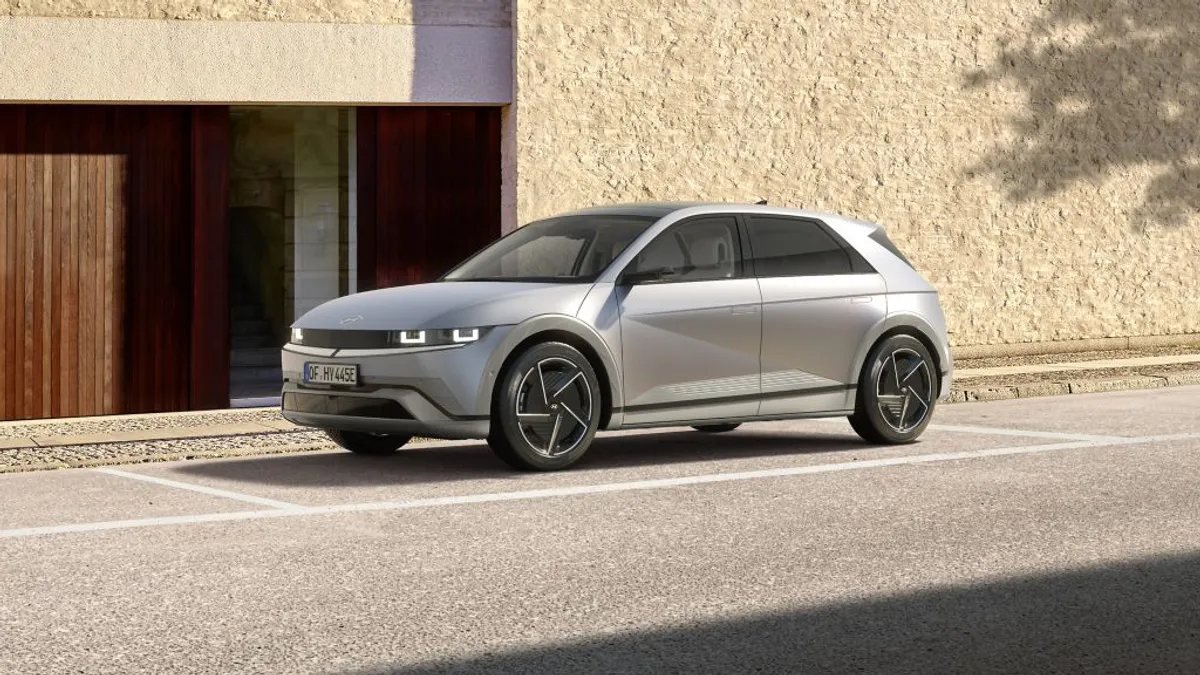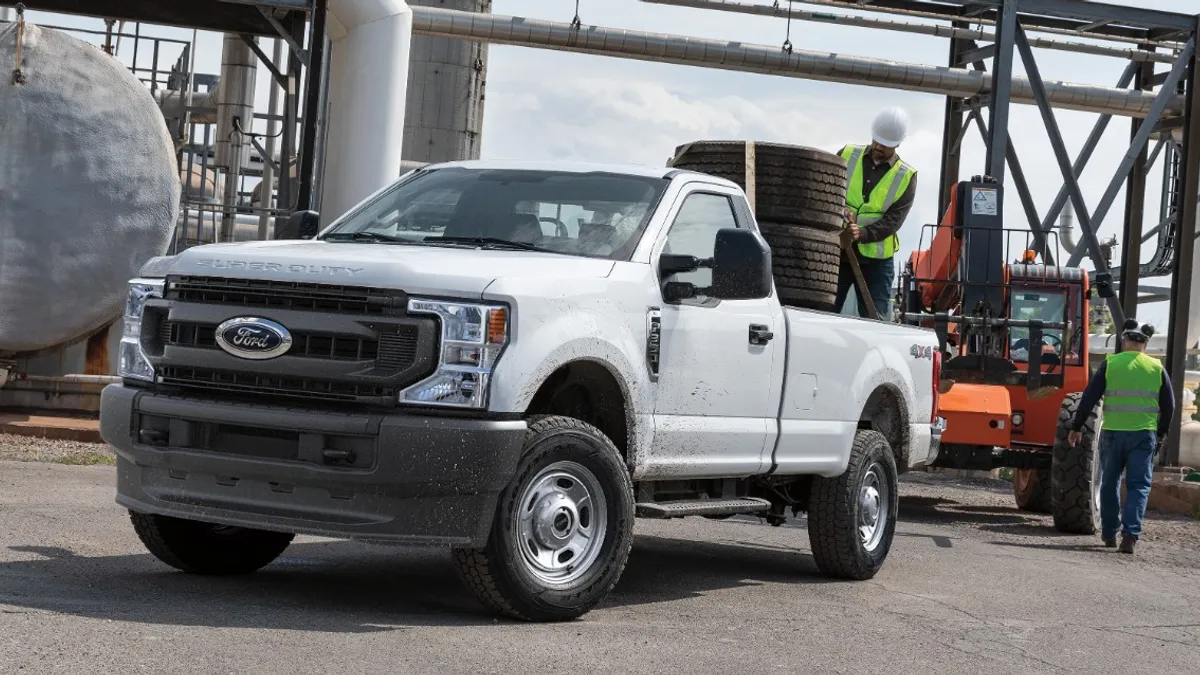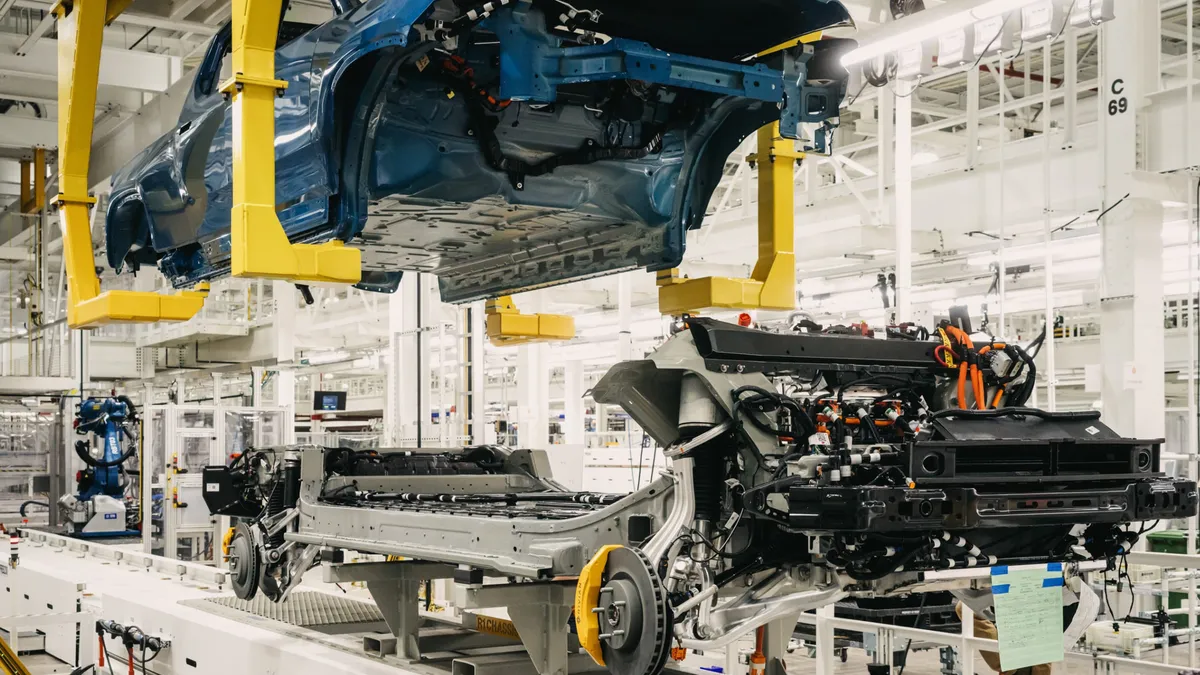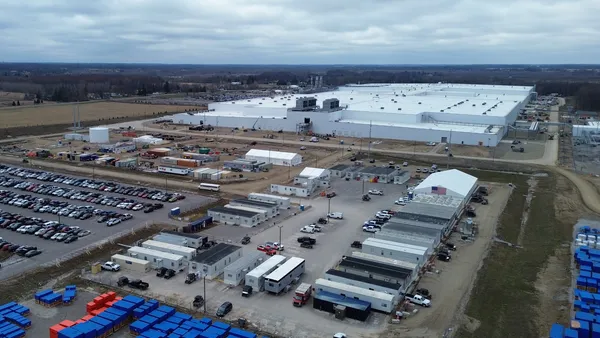Dive Brief:
- Hyundai Motor America recalled approximately 145,000 electrified Ioniq and Genesis brand models over charging and drive power issues, according to a Nov. 18 National Highway Traffic Safety Administration announcement. The integrated charging control unit may become damaged and fail to charge the vehicle’s 12-volt accessory battery, which could result in a loss of drive power.
- The recalled models include the 2022-2024 Ioniq 5; 2023-2025 Ioniq 6; 2033-2025 Genesis GV70 and GV70 electrified, 2023-2024 G80 and GV80 electrified; and 2023-2025 Genesis GV60 and GV70.
- Dealers will inspect and replace the ICCU and its fuse if necessary, as well as update the unit’s software free of charge. Owner notification letters are expected to be mailed Jan. 17.
Dive Insight:
The recalled models were part of a previous recall in March of nearly 99,000 Ioniq and Genesis vehicles for the same issue with the ICCU, which the company addressed with a previous software update. However, Hyundai received new reports from June though November of ICCU failure on vehicles that were remedied under this recall, according to the NHTSA report.
The updated software is designed to prevent overcurrent in the ICCU by reducing voltage peaks at the end of charging the EV’s battery. The software patch also improves the operational threshold of the radiator fan and electric water pump to reduce thermal load when charging and driving, according to the NHTSA report.
The ICCU charges the vehicle’s 12-volt auxiliary battery and powers low voltage accessory equipment, such as the vehicle’s electric water pump. The ICCU also supports the bidirectional charging feature of Hyundai’s fully-electric vehicles.
If the ICCU fuse fails, the vehicle will enter a fail-safe mode that will gradually reduce drive power after approximately 22 to 45 minutes. Vehicle safety systems however, such as steering, braking and air bags, will remain functional.
Although Hyundai's North America Safety Decision Authority eventually concluded that the estimated 22 to 45 minutes of available drive time in fail-safe mode was reasonably sufficient, the automaker still elected to conduct a voluntary safety recall in March.
Hyundai was first made aware of the problem in October 2022 after inspecting ICCUs returned from warranty claims of Hyundai and Genesis vehicles in various markets. Upon inspection of the returned parts, engineers noted heat damage on low-voltage transistors inside ICCU assemblies of some vehicles.
Hyundai investigated the failures from January to September 2023, which included demonstrations of the defect with members of NHTSA’s vehicle research and testing center.
In the U.S., Hyundai is aware of 57 incidents of ICCU failures from March 25, 2024, through Nov. 5, 2024, though there are no reports of crashes or injuries.
A second recall of nearly 63,000 Kia vehicles that use the same ICCU, including the EV6, was also issued, bringing the total number of recalled vehicles to just over 208,000.












